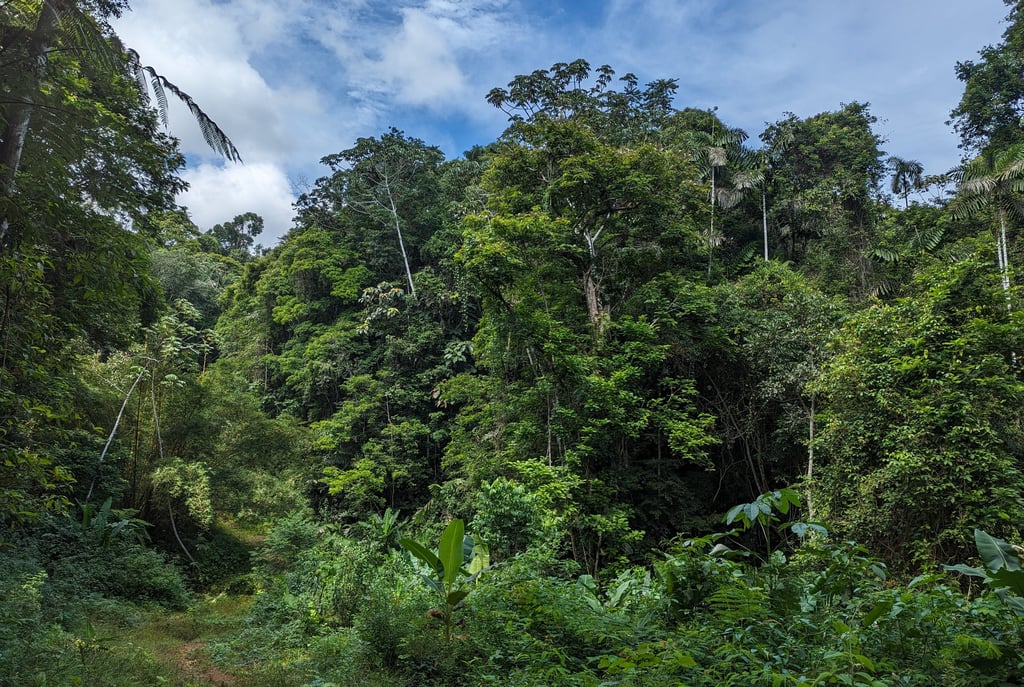Bridging the Environmental Equity Gap: Why Developed Countries Need to Do More
This blog post delves into the United Nations Environment Programme's alarming findings about resource consumption disparities, highlighting the urgent need for wealthier countries to contribute more to combating climate change. As the stewards of a significant share of global emissions and material consumption, it's incumbent upon developed countries to lead the charge in environmental conservation and sustainable practices.
The Forest
3/11/20244 min read


The climate crisis looms large over humanity, with recent reports from the UN Environment Programme (https://phys.org/news/2024-03-rich-countries-resources-generate-climate.html) underscoring the disproportionate resource use and climate impact of wealthy nations. In an increasingly resource-strained world, the call for environmental equity is louder than ever. The burden of conservation must be shouldered primarily by developed nations, whose prosperity and luxuriating in the fruits of industrial progress has incurred a significant historical environmental debt.
This blog post delves into the United Nations Environment Programme's alarming findings about resource consumption disparities, highlighting the urgent need for wealthier countries to contribute more to combating climate change. As the stewards of a significant share of global emissions and material consumption, it's incumbent upon developed countries to lead the charge in environmental conservation and sustainable practices.
The High Cost of High Living Standards
It's become clear that high-income countries, enjoying a standard of living bolstered by extensive infrastructure and material consumption, are responsible for an outsized share of environmental degradation. This lifestyle comes at a steep price: a price that is often not paid where it is due but is offloaded onto the global ecosystem and, by extension, every living being on our planet.
The stark reality is that the resource extraction footprint of richer nations outstrips that of their developing counterparts by a staggering margin. Material extraction, which has tripled in the last half-century, not only threatens the delicate weave of our biodiversity but also catalyzes the climate crisis, pushing us closer to irreversible ecological thresholds.
In the spirit of the Sustainable Development Goals, agreed and accepted by most of the countries worldwide, there is a dire need to start taking responsibility and action. A global solution is needed where conservation efforts are as much a part of business strategy as they are of environmental policy. The message is crystal clear: the time for significant, equitable climate action is now!
Proportionality in Climate Action
In a world where natural resource consumption and climate impact are intrinsically linked, the financial effort toward conservation from wealthier nations should be proportional to their environmental impact. It’s not just an obligation; it’s a necessity for the preservation of our global commons.
To achieve a sustainable future, financial commitment must match environmental impact. Developed nations, benefiting from decades of industrial growth, have a moral and practical obligation to invest more heavily in conservation and sustainable technologies worldwide and not just locally. This investment isn't charity; it's a necessary payment for the external costs of their accelerated development.
The economy stakeholders in developed nations can and should take the lead in environmental stewardship, reflecting on the pivotal role of conservation financing in the journey toward global net-zero emissions.


Solarpunk Forest Project: A Direct Link for Conservation Funding
Recognizing this need for direct action, the Solarpunk Forest Project pioneers an innovative approach. By establishing a connection between forests and companies, it channels capital directly into conservation efforts. This initiative represents a transformative approach to conservation finance, one that cultivates direct conduits between corporate entities and the vital work of forest and biodiversity conservation. This direct funding model doesn't just aim to preserve our forests and biodiversity; it seeks to revolutionize how we value our natural world.
Instead of relying on indirect and often convoluted funding mechanisms, Solarpunk Forest offers a transparent and impactful way for companies to contribute to the environment. It's not just about carbon credits; it's about establishing a sustainable legacy. It's a move away from passive carbon offsetting towards active engagement in the preservation and enhancement of natural habitats thus ensuring the prosperity of biodiversity.
For companies looking to pivot towards this new paradigm, the Solarpunk Forest Project offers a roadmap. It’s an opportunity to invest in the very fabric of our ecological well-being, to become pioneers in a movement that envisions a future where economic prosperity does not come at the expense of our planet.
A Call to Action for Developed Nations
But why should developed countries and their corporations take notice? The answer lies not only in moral duty but also in the tangible benefits that come with embracing environmental stewardship -- enhanced brand reputation, increased consumer trust, and alignment with burgeoning regulatory landscapes that prioritize sustainability.
Now is the time for developed countries to step forward and take responsibility. The Solarpunk Forest Project extends a hand, offering a tangible, effective path to doing their part. This isn't about meeting the bare minimum of global agreements; it's about setting a new standard for environmental stewardship.
The global economy needs to acknowledge that this effort is not just about creating funding streams; it's about fostering a culture of responsibility and acknowledgment that every business has a role in safeguarding our environmental heritage.
In conclusion, the conversation around climate change must shift from recognition to action. And action, in this case, requires significant financial effort from those most capable. Let's not wait for a superhero to save us; let's be the heroes the planet needs.
As we chart this course towards a more equitable and sustainable future, we need to rely on human ingenuity and our collective ability to forge new paths. Let's embrace this challenge, for the well-being of our planet and all its inhabitants, for today and for generations to come.


